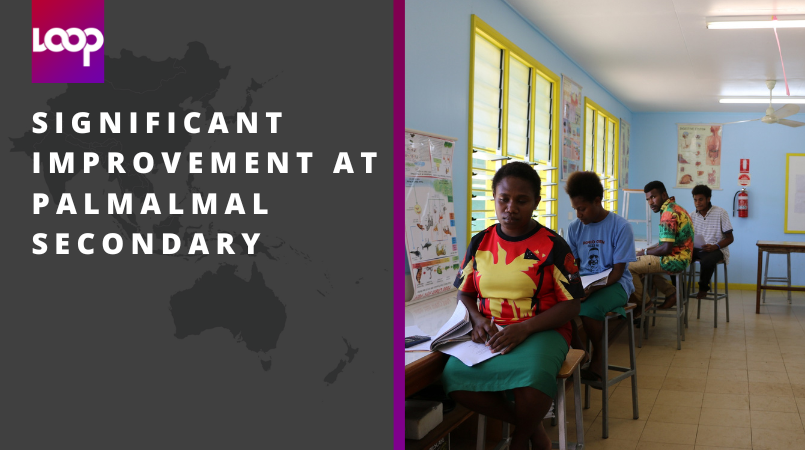
Ludwick Kampukia has been a champion of the Gender Equality Disability and Social Inclusion (GEDSI) program at the Palmalmal Secondary School in Pomio District of East New Britain Province.
The GEDSI program is a component of a PGK3.5million grant from the Australian government to build new infrastructure at Palmalmal Secondary School that aims to make schools gender inclusive, providing education opportunities for both boys and girls.
As the Deputy Principal, Mr Kampukia, or the ‘GEDSI man’, as he is sometimes referred to, is grateful that the program continues to impact the lives of his students and communities around the secondary school.
“Because of the GEDSI program and the awareness drive in the communities and the school, students’ performance has improved, and we have an increase in number of girls in the upper secondary classes. Parents are beginning to understand the importance of education,” he said proudly.
Through his leadership and ongoing support from the school administration, Mr Kampukia has initiated more changes within the school’s structure.
“In the past we only had men making up the Governing Council and Parents & Citizens Council. Now, because of this GEDSI program, we have tried our best to make a fair representation of the members.
“The GEDSI program has also changed some of the school organised activities. Sometimes we had games organised by boys only or girls – now we have both genders actively planning and taking part in different sports – narrowing the gap between girls and boys.”
For Grade 12 student, Christine Lepan, the new infrastructure has been life changing.
“The buildings come with everything, and we are learning a lot. It’s good to share ideas and have discussions with the boys. I think it is helping us a lot,” she said.
Mr. Kampukia adds that many of the social issues at the school were a result of lack of respect, and through this continuous awareness, the students have developed self-respect among themselves.
“We have combined assembly, as well as meetings for boys and girls separately, and talk with them to instill self-respect and discipline. After completion of the infrastructure, we have seen an improvement in student performance. This is because of the GEDSI component imbedded into students’ academic work – so change in attitude goes together with academic performance.”
Mr. Kampukia is not alone in his work to encourage GEDSI awareness in the local area. Other community members, including a policewoman and community leaders, have joined him in visiting schools and nearby communities to increase awareness. Their efforts continue to improve the experience for students like Silas Kelre, a grade 10 student.
“Mr. Kampukia is our role model; I like how he runs his programs. It has helped us change our behaviour to learn new things and respect one another,” says Silas.
Orimilton Tadigu who teaches legal studies and social science, couldn’t agree more with the inclusion initiative: “The students are learning to work together. Before, boys were on one side and girls were on the other side. This has developed their minds – and has helped them achieve better results,” she said.
“It has helped teachers as well understand their roles as educators. If they are not implementing some of those initiatives, it would be difficult. I hope that this type of program continues,” she added.
And for students like Christine and Silas, who represent their peers, this is the beginning of positive change they saw in not only the school but in themselves too as they take a step closer towards realising their own dreams and aspirations for the future.
